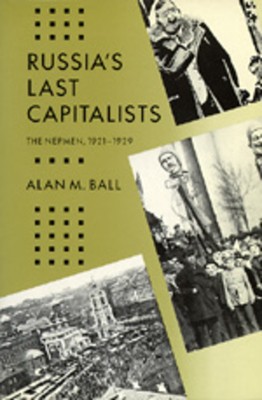
- We will send in 10–14 business days.
- Author: Alan M Ball
- Publisher: University of California Press
- ISBN-10: 0520071743
- ISBN-13: 9780520071742
- Format: 15.2 x 22.7 x 1.7 cm, minkšti viršeliai
- Language: English
- SAVE -10% with code: EXTRA
Reviews
Description
In 1921 Lenin surprised foreign observers and many in his own Party, by calling for the legalization of private trade and manufacturing. Within a matter of months, this New Economic Policy (NEP) spawned many thousands of private entrepreneurs, dubbed Nepmen. After delineating this political background, Alan Ball turns his attention to the Nepmen themselves, examining where they came from, how they fared in competition with the socialist sector of the economy, their importance in the Soviet economy, and the consequences of their "liquidation" at the end of the 1920s.
Alan Ball's history of this experiment with capitalism is strikingly relevant to current efforts toward economic reform in the USSR.
EXTRA 10 % discount with code: EXTRA
The promotion ends in 22d.11:15:13
The discount code is valid when purchasing from 10 €. Discounts do not stack.
- Author: Alan M Ball
- Publisher: University of California Press
- ISBN-10: 0520071743
- ISBN-13: 9780520071742
- Format: 15.2 x 22.7 x 1.7 cm, minkšti viršeliai
- Language: English English
In 1921 Lenin surprised foreign observers and many in his own Party, by calling for the legalization of private trade and manufacturing. Within a matter of months, this New Economic Policy (NEP) spawned many thousands of private entrepreneurs, dubbed Nepmen. After delineating this political background, Alan Ball turns his attention to the Nepmen themselves, examining where they came from, how they fared in competition with the socialist sector of the economy, their importance in the Soviet economy, and the consequences of their "liquidation" at the end of the 1920s.
Alan Ball's history of this experiment with capitalism is strikingly relevant to current efforts toward economic reform in the USSR.


Reviews